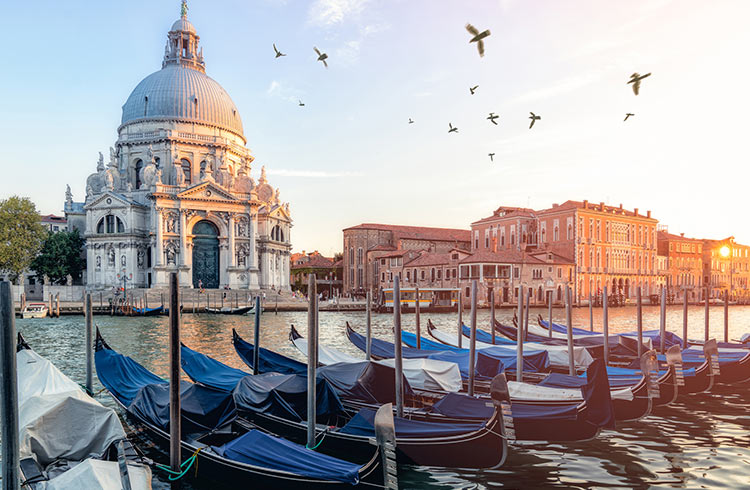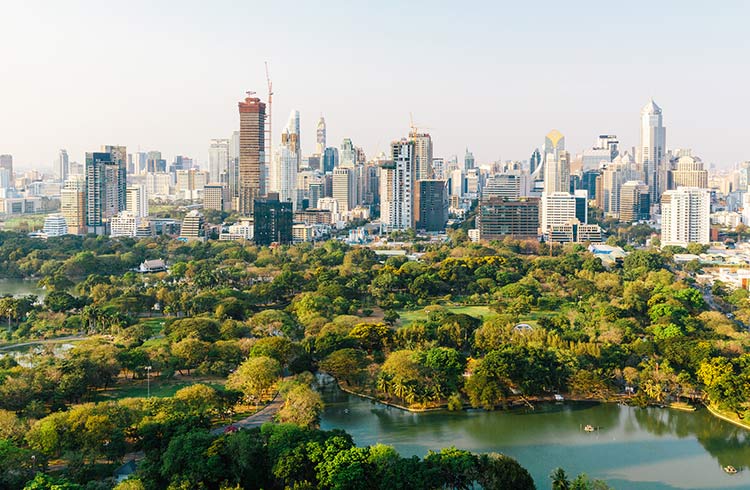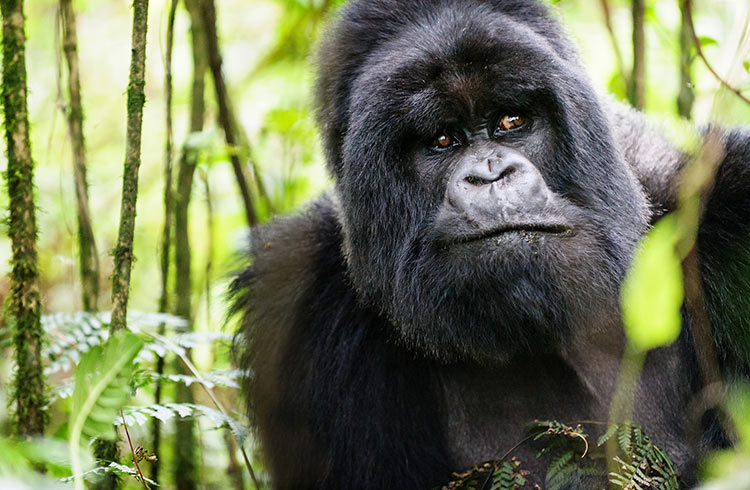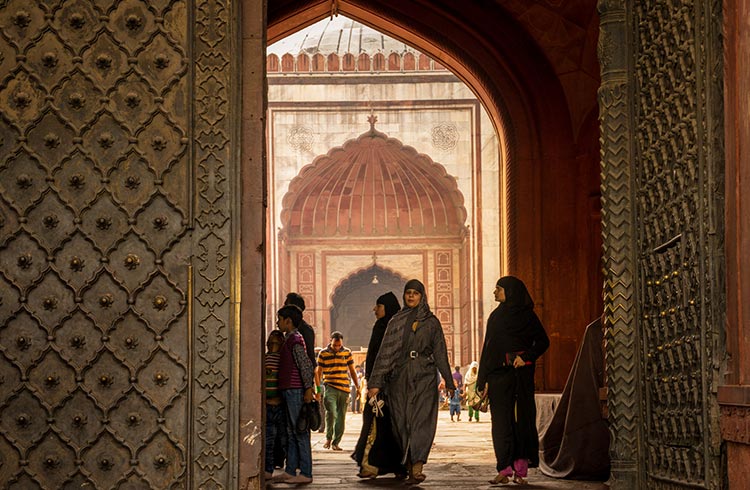Why Travel Will Bounce Back From COVID-19
The world is starting to open its doors to travelers, so soon we’ll be able to go anywhere and everywhere – more responsibly this time.
 Photo © Getty Images / JaCZhou 2015
Photo © Getty Images / JaCZhou 2015
Of all the consequences of coronavirus (COVID-19), a big one has affected all of us who love traveling: the world closed its doors. It was the ultimate disruption. The day of 14 March 2020, has even been dubbed 'the day the world stopped traveling' by Rafat Ali, CEO of global travel analytics company Skift, based in New York City, one of the destinations hardest hit by the pandemic.
But people have always traveled, since prehistoric times when we wandered out of Africa into Europe, Asia and the Americas and kept going. We’ve roamed across every climatic zone, up the sides of forbidding mountains, into faraway cities. Home might be where the heart is, but the open road is where many of us seek liberation, where we learn about life, the world and ourselves.
Travel is in our DNA, in other words, and it’s going to take more than a global shutdown to change that.
- A world without travelers
- Why travel will bounce back
- Post-pandemic travel
- How to travel better
- Dream on, and travel responsibly
A world without travelers
By June 2020, COVID-19 had made its way to more than 210 countries and territories, according to the World Health Organization, many of which still have curfews, closed borders, travel bans and other safety measures in place to reduce its spread. We've been given a rare glimpse of a world without travelers.
There have been blue skies over Beijing as air pollution levels dropped. 'Ghosted' attractions such as Cambodia’s Angkor Wat are empty of tourists for the first time in years. And global carbon emissions have been dramatically reduced; in India alone, emissions fell 26 per cent in April 2020 relative to 2019.
Fish and swans have even returned to Venice’s canals, which have been flowing clean and clear since March when the lockdown in northern Italy began. The city tentatively reopened to outsiders in May 2020 but with international visitors hamstrung by their own travel restrictions, it’s still resting, says Venetian tourism consultant and guide Camilla Feiffer. “I feel Venice needed this and it is so incredibly beautiful these days it almost makes me cry.”
Why travel will bounce back
It’s too early to say how long we’ll be adrift in these uncharted waters. “It’s not an incident like a natural disaster or a terrorist attack where you know that in, say, three months everything will be back to normal,” says Geoff Manchester, co-founder of Intrepid Travel. “This is a more complex issue, as the success in overcoming COVID-19 varies enormously from country to country, which means that once we are allowed to leave our own countries, it’ll be to a very limited range of places.”
Manchester firmly believes travel will bounce back, for three reasons. First, it has become “such a normal part of life, we’ll just go back to doing it. Lots of young people in particular live to travel, spending their money not on housing or cars but on their next trip.
“The other thing is that after a period of not traveling we’ll be bored and wanting to get away,” he says. “And thirdly we’ll have time to do plenty of travel research. Our busiest time of year for bookings is always January/February after people have had some time off to plan and think about where they’d like to go next.”
Carolyn Childs of Sydney-based My Travel Research agrees: “Despite the fact that the pandemic has left us with deep damage to the global economy, we can be totally confident that travel will bounce back because after each of the previous crises we’ve had – 9/11, SARS, the Global Financial Crisis – travel bounced back quickly and stronger than ever. Each time part of the driver for recovery has been people’s reluctance to sacrifice travel: they may stay closer to home, travel for fewer nights or spend less, but they have fought to keep travel as part of their lives.”
“The larger challenge is to make sure that what comes back is a better model for the planet, host communities and ultimately visitors themselves,” she says.
Post-pandemic travel
From a responsible travel standpoint, this forced pause in our traveling lives gives us a chance to reflect on how we travel – and how to do it better when the time comes to dust off our passports and hit the road again.
“We are now more aware than ever how interconnected the world has become,” says Freya Higgins-Desbiolles, senior lecturer in tourism management at the University of South Australia, which means our travels have consequences, positive as well as negative.
“This public health crisis reminds us our well-being depends not on being consumers but on being part of a community,” she says. “Staying closer to home could be a catalyst awakening us to the value of eating locally, traveling less and just slowing down and connecting to our community… After this crisis passes, we might find the old business-as-usual less compelling. We might learn that not traveling long distances didn’t stop us traveling; it just enlivened us to the richness of local travel.”
How to travel better
Tourism traditionally serves travelers and the travel industry, says Higgins-Desbiolles, but that needs to change. “If tourism is to have a sustainable future, we need to reorient our focus and put the well-being and interests of local residents at the forefront.” In practical terms, she suggests that travelers gain “a basic understanding of local living conditions and shape their travel plans accordingly.”
It’s too early to know what travel might look like on the other side of this crisis. Will the need for social distancing make us seek out sparsely populated places, for instance, or crave the buzz of busy-again cities? Geoff Manchester predicts the virus might become part of our decision-making process, at least initially.
“Travelers are likely to be more sensitive to crowds because COVID-19 is spread in large gatherings,” he says. “So they’ll be thinking: ‘Where in Italy can I go that’s not Venice? Where in Spain can I go that’s not Barcelona?’ Alternative destinations and outdoor activities are definitely going to experience more interest, I think.”
Dream on, and travel responsibly
The good news is that the world isn’t going anywhere and until we can wander in real life we can let our minds daydream about trips we’d like to take, and research the possibilities. How can we travel more responsibly when we resume our travel and ensure our post-pandemic adventures have a positive impact? Here are a few ideas to get you started:
- Stay local. Lockdown has given ‘staying local’ a whole new meaning. When we can eventually venture beyond our own neighborhoods and regions, why not plan a 'locals only' trip that keeps as much of your spending money with locally owned businesses – tour guides, restaurants, cafes, hotels and guesthouses?
- Postpone, don’t cancel. Traveling responsibly isn’t just about helping communities; many airlines, hotels, travel companies and travel agents need bookings to survive this crisis. Some have waived change fees if you reschedule rather than cancel trips, while others are offering ‘zero deposit’ and ‘book now, pay later’ deals to encourage bookings – which also gives you something to look forward to!
- Be positive. Sharing wonderful pre-pandemic travel experiences you’ve had keeps everyone focused on the positive side of travel, says the World Travel and Tourism Council. A bit of vicarious travel joy is probably good for our immune systems too.
- Go where you’re needed. Visiting destinations that depend on tourism to survive makes a real difference in people’s lives. “People might want to visit places that were hardest hit [after they have recovered] such as Italy or Brazil,” says Intrepid's Geoff Manchester.
- Be inspired. Bookmark cabins, tiny house stays and eco-adventures by reading responsible travel guidebooks such as Slow Travel by Penny Watson or Lonely Planet’s new Sustainable Escapes, or listening to podcasts such as The Thoughtful Travel Podcast and, of course, World Nomads.
Related articles
Simple and flexible travel insurance
You can buy at home or while traveling, and claim online from anywhere in the world. With 150+ adventure activities covered and 24/7 emergency assistance.
Get a quote


No Comments